- Home
- Lois Lowry
Dear America: Like the Willow Tree Page 8
Dear America: Like the Willow Tree Read online
Page 8
Brother Delmer is not old, thank goodness, because I do not know what we would do without him! He fixes everything and invents new things for what can’t be fixed. He even pulls teeth when necessary! Dr. Hayden, the dentist, comes occasionally for “real” dental visits. There is a special chair in the trustees’ office. But when Rebecca had a loose tooth that became infected, it was Brother Delmer who pulled it. Then Rebecca had a poultice made from Shaker herbs. She held it warm against her jaw and after a few days was feeling fine.
Brother Delmer came here with his brother when he was a young boy, after their father died. A few years later, his mother came to get them. And Delmer’s brother went with her. But Delmer refused. She came back several times, the sisters say, but he was steadfast and refused to go. Finally she went away for the last time, and Delmer didn’t see her or his brother, Harry, for years and years. This is his true family.
But the family grows smaller and smaller.
Wednesday, December 25, 1918
Last night, Christmas Eve, the older girls performed a lovely Christmas pageant that they had prepared, and afterward there were gifts under a large tree in the winter chapel. Mr. Brackett, from Portland, sent a box of oranges, a real treat. Some children had gifts that family had sent. But not everyone. There was nothing from family for me. But there were things from the sisters, little things they had made, and to my delight, a special gift from Sister Jennie: a new journal to write in! She told me that the Shakers keep a journal, that one of them writes of each day’s doings. So I am not the only one.
The Christmas tree surprised me, for it seems such a worldly thing. And another surprise this morning: There was also a small decorated tree in the girls’ shop, and under it new games and books for our group of girls. We opened the gifts after breakfast. There was a worship service, for Christmas is like the Sabbath, and in the afternoon we amused ourselves quietly, as we would on an ordinary Sabbath. No noisy games. But new books to read! And lovely new thimbles and pincushions for us to use when we do our embroidery (some of the girls do enjoy that, though I am not one).
I carefully wrote a title page in my new journal, designating it The Days of Lydia Pierce, 1919, Sabbathday Lake, Maine. I will begin the actual writing of the pages in the New Year.
Friday, December 27, 1918
An ice storm. We cannot go outdoors. And one of our pipes froze and burst. Brother Delmer came and repaired the broken pipe. I think there is nothing he cannot do!
Wednesday, January 1, 1919
The first page of my new journal! I will resolve to write neatly and not to be critical of others in my writings.
Back in my other life — my past life, my life in Portland — we always made New Year’s resolutions. Silly things, usually. A year ago I resolved to be more helpful to my mother around the house. Daniel resolved to pay better attention to his schoolwork. My friend Emily Ann and I resolved that we would never have foolish arguments anymore, and would be best friends forever.
Now, twelve months later, those things seem so meaningless. And here, with the Shakers, there is no talk of New Year’s resolutions. I expect that if I mentioned it to Sister Jennie, she would point out that Shakers resolve in their hearts every day to be as perfect as possible, and without flaws. No Shaker needs to make a resolution for that because it is part of daily life.
But secretly, I am resolving this: to find Daniel.
There is no school now. It will resume next Monday. I am planning to find a way to talk privately with the girl named Gloria, a girl from the world who is in grade eight. I think she is the sister of the boy who was Daniel’s friend at school. She may know who to ask. Somewhere, out there in the world, someone knows where Daniel has gone.
Friday, January 3, 1919
Ten inches of snow today! We are completely buried.
It is so beautiful. The white buildings of the community gleam against the sparkling snow. The huge dwelling is the only bit of color, with its reddish-pink bricks. It stands there so solid in this fairy-tale world. Icicles dangle from the eaves, and now and then we can hear one snap loose and fall. Wind picks up bits of snow and swirls it into the air. There is a huge drift against the side of the barn.
The brethren and the boys shovel and clear. The animals are warm and fed in the barn, and we are cozy in the girls’ shop. We can hear the scraping sounds as the shovels make their way to us.
Saturday, January 4, 1919
A very exciting thing happened today! A sleighing party from the Mansion House came to Sabbathday Lake and stopped for a visit. They were all dressed very elegantly and had fur lap robes to keep them warm. There were no children, though. I wish there had been children.
They came into the sisters’ shop and looked around, commenting very favorably about all the fancywork. And one woman bought a beautiful purple cloak for $38! The sisters handled the business very calmly but after the hotel guests had gone, they shrieked a bit and clapped their hands together in delight. It was the most expensive thing they had ever sold! I think they will set right to work on more cloaks. Maybe more purple!
They say that Elder William will take us girls for a sleigh ride soon.
Sunday, January 5, 1919
Courage! My brothers, each step bears you on,
On to that beautiful home;
March ye in triumph with victory crowned,
Home to a heavenly home.
I know that that song is talking about heaven, and not a home with a fireplace and a rocking chair. But I like to think that “brothers stepping on to a beautiful home” is referring to Daniel, and that he will somehow step on to a place where he is happy.
Monday, January 6, 1919
School has reopened after a vacation for the holidays, and our feet crunch on the packed snow as we walk along the paths to work and to breakfast and then across the road to the schoolhouse. The snow on either side is taller than most of us.
I had made up my mind to ask the girl, Gloria, if she knew anything about my brother. She is a pleasant enough girl, blonde and freckled, though not terribly bright and I fear she may not stay in school until she graduates. I have not spoken much to her before, but today, standing near her as we warmed ourselves at the woodstove, I smiled and asked if her family had fared comfortably through the big snowstorm.
“It was hard getting here today,” she said. “The road’s only part plowed. My brother stayed home to help clear.”
So I was right. She is the sister of Daniel’s friend. I remembered that his name is Eli. His desk was empty today.
I would have said more, but the teacher called us to sit down then, and as always the school day began with the Lord’s Prayer. I waited impatiently throughout the morning for another chance to talk to Gloria. Because of the deep snow we did not have outdoor recess, but when there came a time that Gloria excused herself to go to the outhouse, beside the woodshed, I waited a few moments and then got permission to go as well. I met her on the shoveled path.
“I’ve been wondering if you would ask your brother something for me,” I told her.
She looked at me curiously. It was cold outside, and we both had our arms wrapped around ourselves for warmth. I could see that her fingernails were dirty.
“You remember Daniel? He shared Eli’s desk. I think they were friends.”
“Oh, sure, I remember that boy,” she said. “Eli said he’s very smart. Could do all the math easy. Eli has trouble with math.”
“He’s my brother.”
She looked at me curiously, at my Shaker-made clothes. “But he went away, and you stayed?”
I nodded. “Yea. I mean yes. He ran off.”
“You looking to find him?” She shivered in the wind. “We gotta go in. It’s too cold.”
I followed her to the schoolhouse. “Can you help me? Can you ask Eli?”
“Don’t let the cold in, girls,” Sister Cora called when we opened the door. “Hurry inside!”
Gloria and I went to our desks. At noon, when the
bell rang for dinner and I went for my jacket where it hung on its peg, I passed her seat and she whispered to me, “I’ll ask.”
Thursday, January 9, 1919
It is so cold now, below zero, that Sister Cora will not hold school tomorrow. The children from the world cannot make their way to school in this cold, not with the wind blowing, for fear of frostbite, and the large schoolroom, though it stays warm by the stove, is very drafty around the windows. We wear scarves around our necks. Our fingers become stiff. And the ink in our ink pots is thickened by the chill.
There is a wood furnace in the girls’ shop. We take turns bringing in wood from the storage place off the porch, and we stay cozy, though the retiring rooms are chilly. Brother Delmer rises very early, before anyone, and starts the fires in the stoves in the laundry and ironing rooms.
I helped make apple pies for tonight’s supper. One more Shaker invention: an apple-peeling device! It makes it so much easier. While Sister Hazel rolled out the crusts on the marble slab in the baking room, I peeled apple after apple, turning the little handle that makes the device revolve against the blade. Then Grace, who was also helping, sliced them into a large bowl and added sugar and cinnamon. The cores and peelings are saved for the animals. While the pies were baking in the large brick oven, Eliza (who lives on the third floor of the girls’ shop, along with her sister Lila — they will be moving soon to the big dwelling) whipped some cream that had been separated off the top of the milk and set aside. Sister Sirena prepared the fish chowder, and Grace and I got the dishes in order for the meal.
There is so much work in preparing meals three times a day, and the cleanup afterward! But we have become a sort of team, each of us knowing our role. And I do love the kitchen, with its fine smells, and the cheerful conversation among the sisters.
Outside, the wind was howling, and as the supper hour approached we could hear the brethren and boys come from their side of the dwelling, stamping snow from their feet, hanging their jackets, and moving into their silent waiting space beyond the dining room. They had been out in that bitter weather, feeding and watering the animals, milking the cows, preparing the barns for night. Their faces and hands, I knew, would be red with cold and their breath coming in short, steamy gasps. Now, in the place where they waited for the dinner bell, they sat, became quiet, and let the warmth come through them.
The sisters and girls were entering on the other side. The wind continued battering at the brick walls of the dwelling. It swept up the hillside across the road and bent the trees there. The sky was very dark and the golden gaslight from the windows reflected on the icy snowdrifts. In the barn, I suppose the oxen and other animals were snorting and shifting in their stalls. Everyone is looking for warmth.
Friday, January 10, 1919
It is four degrees below zero. No school still. Brother Delmer comes to check our pipes. He tells us to leave a little water running. That will help to keep them from freezing. Usually Sister Jennie scolds us if we leave water running! But now we follow his instructions because it is terrible when the pipes freeze and burst.
Tuesday, January 14, 1919
School has resumed but Gloria is absent. Her brother Eli is, as well. The students from the world are most likely absent, I think, because their families need their help in this cold. There is wood to be brought in, fires to tend, animals who need feeding and watering. Clothes must be dried and warmed, and even cooking is different, and harder, when farmhands need to be nourished with hot soups and stews. The same is true here, and we work hard in the kitchen to keep up the strength and the spirits of the men and boys who come in chilled to the bone.
But fortunately no one is ill, except Brother John Dorrington, who is not at all well and may be slipping toward spirit life, they say. The rest of us are red-cheeked and hearty, even those with tooth trouble, ear trouble, heart trouble.
We are fortunate. In school today, Sister Cora talked of the influenza epidemic.
I knew, of course, from my own family what a terrible toll it had taken. But I did not know how many millions of others had perished. Over 25 million — some say 50 million — all around the world! The King of Spain, and the son of the French Premier — both lost to the flu. In this country, our Assistant Secretary of the Navy was taken ill in September, when he was on a ship, and had to be carried ashore, unable to walk, and spent weeks recovering. He was a young man, and not a famous name — I didn’t recognize it — Franklin Delano Roosevelt. But he survived. So many others did not. In the town of Bath, there were 3,000 cases of influenza, and three young nurses who had volunteered to help were stricken and lost their lives: Harriet Bliss, Alice Dain, and Adelaide Hogue.
Many more Americans died in the epidemic than in the war.
The Maine Department of Health has built an emergency corps of doctors and nurses so that they will be prepared if such a disaster ever strikes again. This time, there were not enough medical people to deal with the sick, and no one knows that better than me. We were alone in our house, with no doctor who could come, and though I have no way of knowing, I expect that in our pretty little Woodfords neighborhood we were not the only ones. Perhaps house after house experienced what my family did, each of us alone and afraid.
Though except for the reciting of the Lord’s Prayer each morning, we do not ordinarily pray in school, today we paused and bowed our heads to remember those who had entered into spirit life, and to give thanks for our good health. Funny little Lillian Beckwith announced, midprayer, “But Pearl and me have sniffles!” and I could see Sister Cora, usually so stern, smile slightly.
They say that because women played such a valuable role in both the war and the epidemic, they may soon be given the right to vote! The U.S. Congress must pass the 19th Amendment to the Constitution, which will grant them that right.
Women and men have always been equal in the Shaker faith. It is part of Mother Ann’s teachings. I must say that I find her teachings very wise, all but the no-pets part. And I have some worries about the no-marriage. Certainly, it is true that one concentrates more on one’s faith and work if one is not distracted by romance and marriage and babies.
But where will the Shakers of the future come from?
Friday, January 17, 1919
Gloria and Eli are both back in school and have brought me news of Daniel!
Eli could not speak to me, of course, because it is not allowed. But Gloria took me aside at recess while the other girls were playing stoop tag in the road beside the cemetery.
“At first Eli didn’t want to tell me because he promised Daniel he wouldn’t say anything,” Gloria said. “But I said I’d help him with his Geography homework, and so finally he gave in and said Daniel’s in Oxford Hills.”
Oxford Hills! That’s not very far away!
“He told Eli he was going to hitch a ride on a train and go out west, or if he didn’t do that maybe he could go on a fishing boat. They hire young boys.”
I shuddered. Winter on a fishing boat off the coast of Maine! I couldn’t imagine Daniel out there on the sea, freezing and wet and probably scared.
Gloria giggled. “He should join a circus!”
I didn’t think that was funny. All boys say they’re going to run off to a circus, but I know from hearing Sister Jennie read Toby Tyler that no good comes of that dream!
“Anyway,” she went on, “he only got as far as Oxford Hills. He didn’t have any money, and he tried to talk Mr. Melby at the general store into giving him some food for free, if he swept the floor and straightened the shelves. Mr. Melby felt sorry for him and took him on as a helper. He sleeps on the floor in the storeroom.”
“On the floor? But here in the boys’ shop he had a warm bed! And three good meals every day!”
Gloria shrugged.
“And what about school?” I was almost wailing. “Our parents thought school was so important! And Daniel is smart!”
“I expect he has to do some arithmetic there in the store,” Gloria said. I could see
she was trying to make me feel better. “The storekeeper has to add up what people spend. And make change.”
I groaned. Our father had worked in a store. He added things up and made change. He smiled at customers and was polite to them when they complained. But in the evenings, at supper, he told us how our lives would be better than his. He said Daniel would go to college and become a lawyer. He had the knack for arguing, Father said, and would be a good one.
The bell rang for the end of recess. I followed Gloria back toward the schoolhouse. “Daniel liked the animals,” I said in despair. “He knows them as if they were people. He said there was one heifer …”
“Well, Mr. Melby has a cat, I think,” Gloria said cheerfully. “I suppose Daniel can put its food down for it, and clean the dish.”
Clean the cat’s dish! Poor Daniel! I wanted to weep.
Monday, January 20, 1919
We girls were given the news this morning that Elder William Dumont would be taking us on a sleigh ride after school! What excitement! We could hardly concentrate on our studies, and at noon, at dinner, it was hard to be silent. We glanced at each other and occasionally whispered and giggled. Sister Jennie said that if we didn’t behave, she would go and sit at another table, so we tried to contain ourselves. But surely it was the most exciting occasion in a very long time, maybe even better than Christmas.
Finally Sister Cora dismissed us early from school and we ran to the girls’ shop to change our clothes and bundle ourselves for our outing. After a bit, Elder William drove the horses — their sleigh bells making wonderful music — and sleigh up to the end of our path and we all went out and climbed aboard. There were thick blankets over our laps.

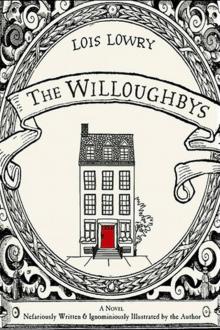 The Willoughbys
The Willoughbys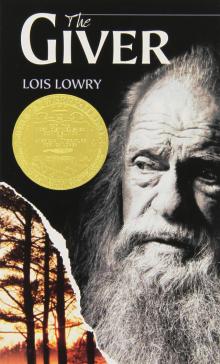 The Giver
The Giver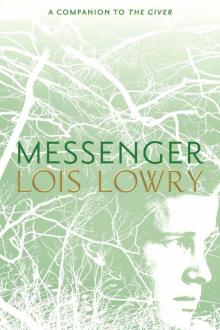 Messenger
Messenger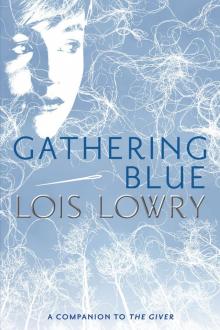 Gathering Blue
Gathering Blue Gooney Bird and All Her Charms
Gooney Bird and All Her Charms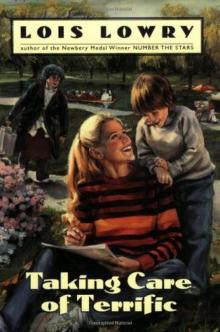 Taking Care of Terrific
Taking Care of Terrific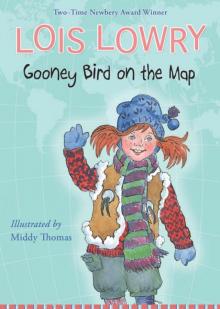 Gooney Bird on the Map
Gooney Bird on the Map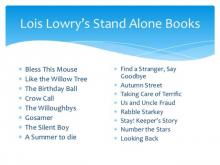 The Birthday Ball
The Birthday Ball Anastasia's Chosen Career
Anastasia's Chosen Career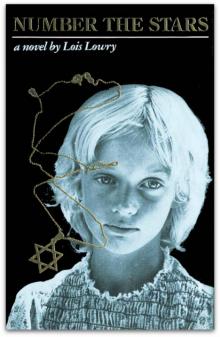 Number the Stars
Number the Stars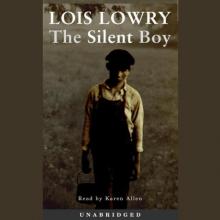 The Silent Boy
The Silent Boy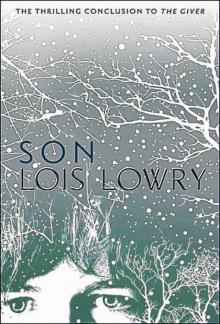 Son
Son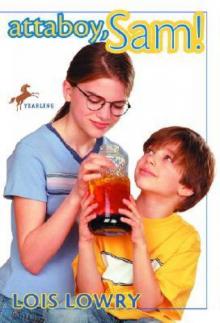 Attaboy, Sam!
Attaboy, Sam! Gooney Bird Greene
Gooney Bird Greene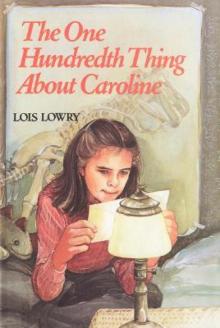 The One Hundredth Thing About Caroline
The One Hundredth Thing About Caroline Anastasia Has the Answers
Anastasia Has the Answers Your Move, J. P.!
Your Move, J. P.! See You Around, Sam!
See You Around, Sam! All About Sam
All About Sam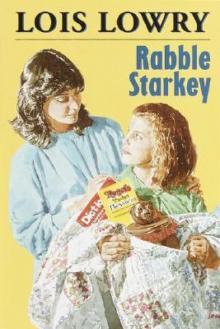 Rabble Starkey
Rabble Starkey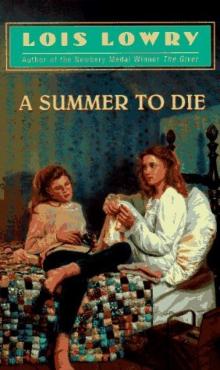 A Summer to Die
A Summer to Die Anastasia at This Address
Anastasia at This Address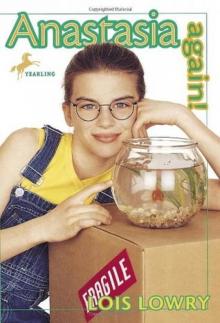 Anastasia Again!
Anastasia Again!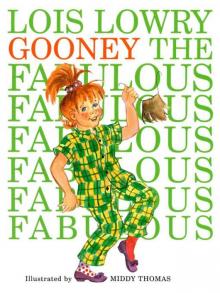 Gooney the Fabulous
Gooney the Fabulous Gossamer
Gossamer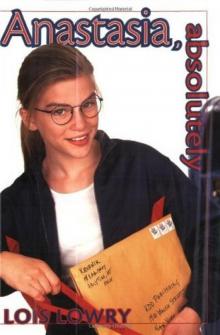 Anastasia, Absolutely
Anastasia, Absolutely Gooney Bird Is So Absurd
Gooney Bird Is So Absurd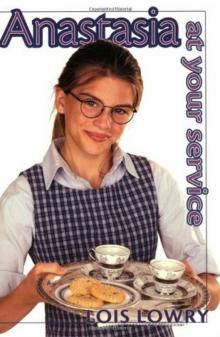 Anastasia at Your Service
Anastasia at Your Service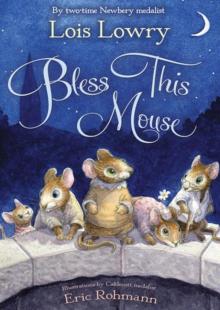 Bless this Mouse
Bless this Mouse Find a Stranger, Say Goodbye
Find a Stranger, Say Goodbye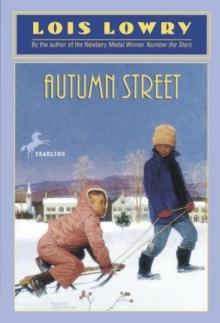 Autumn Street
Autumn Street Stay Keepers Story
Stay Keepers Story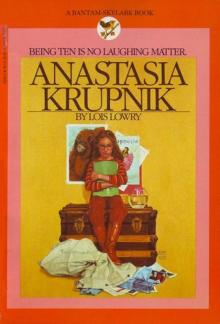 Anastasia Krupnik
Anastasia Krupnik Zooman Sam
Zooman Sam On the Horizon
On the Horizon Anastasia, Ask Your Analyst
Anastasia, Ask Your Analyst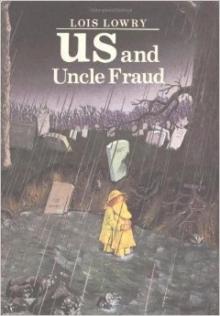 Us and Uncle Fraud
Us and Uncle Fraud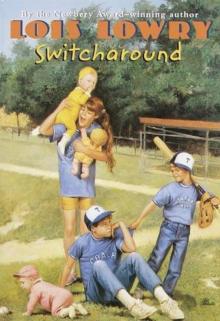 Switcharound
Switcharound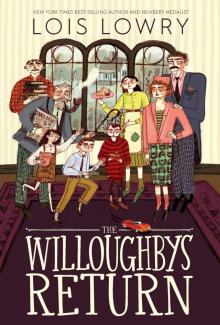 The Willoughbys Return
The Willoughbys Return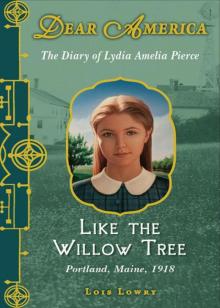 Dear America: Like the Willow Tree
Dear America: Like the Willow Tree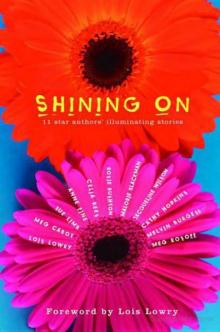 Shining On
Shining On Messenger (The Giver Trilogy)
Messenger (The Giver Trilogy)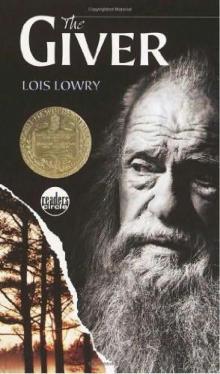 Giver Trilogy 01 - The Giver
Giver Trilogy 01 - The Giver